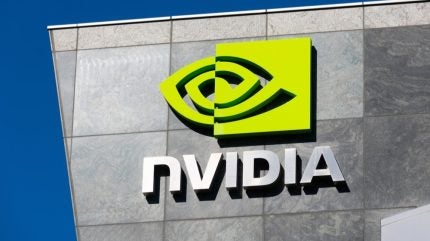
NVIDIA has continued the trend of high-profile collaborations in healthcare centered on its of generative AI (genAI) capabilities by announcing multiple partnerships across imaging, medtech, drug discovery and digital health.
NVIDIA plans to capitalise on this area and has announced partnership deals with four companies to develop drug discovery platforms coinciding with its 2024 GTC AI conference, which is taking place in San Jose, California, from 18 to 21 March. Along with the partnership announcements, the company also released a new suite of healthcare microservices that includes a collection of models for drug discovery and an inference model, NVIDIA NIM.
NVIDIA’s stock price has skyrocketed over the past year, increasing by more than 234% in the last 12 months, and by over 74% since the start of this year. With a market cap of $2.1trn, it is the third largest company, behind only Microsoft and Apple.
In recent months, NVIDIA has invested in providing AI solutions for various healthcare companies through either partnerships or equity investment. According to a GlobalData analysis, deals relating to AI in the pharmaceutical sector alone were worth over $20bn in 2023.
GlobalData is the parent company of Pharmaceutical Technology.
See Also:
One of the publicised collaborations, a deal with Cadence Design Systems, is an extension of an existing multi-year partnership. As part of the agreement, Cadence’s molecular design platform Orion will leverage NVIDIA’s genAI tool and drug discovery platform, BioNeMo, and microservices to expand its therapeutic design capabilities and reduce drug discovery time.
How well do you really know your competitors?
Access the most comprehensive Company Profiles on the market, powered by GlobalData. Save hours of research. Gain competitive edge.

Thank you!
Your download email will arrive shortly
Not ready to buy yet? Download a free sample
We are confident about the unique quality of our Company Profiles. However, we want you to make the most beneficial decision for your business, so we offer a free sample that you can download by submitting the below form
By GlobalDataNVIDIA has also partnered with Cognizant to improve the speed and productivity of drug discovery. Cognizant aims to leverage the pre-trained, industry-specific generative AI models included as part of the BioNeMo platform to help its clients train and customise these models using their proprietary data.
QC Ware’s partnership with NVIDIA is aimed at leveraging the latter’s quantum cloud services with QC’s drug discovery platform, Promethium. The integration is expected to provide Promethium with the ability to generate training data for large, complex molecules. Machine learning models can then use these training data sets for drug discovery.
Microsoft also announced an extension to its existing partnership with NVIDIA. As per the agreement, Microsoft’s cloud computing software, Azure, will host NVIDIA’s BioNeMo. The companies are also collaborating to increase access to NVIDIA healthcare microservices, which can be used by researchers, and developers to create AI algorithms that can be used in medical imaging, drug discovery and other areas of healthcare.
In addition to drug discovery partnerships, NVIDIA has also partnered with Johnson & Johnson (J&J) MedTech to incorporate genAI into surgery. J&J MedTech plans to integrate the NVIDIA IGX edge computing platform and NVIDIA Holoscan edge AI platform for building medical devices to create an infrastructure to deploy AI-powered software applications for surgery. Holoscan includes reference pipelines to build AI applications for a variety of medical use cases, including endoscopy, ultrasound, and other sensors.
GE HealthCare launched an ultrasound imaging software, SonoSAMTrack, which it developed in collaboration with NVIDIA. The software can be used to segment anatomies, lesions, and other essential areas in ultrasound images, thereby, reducing manual input and improving efficiency. The SonoSAMTrack software also has a promptable foundation model, SonoSAM, which can be used to segment objects on ultrasound images.





